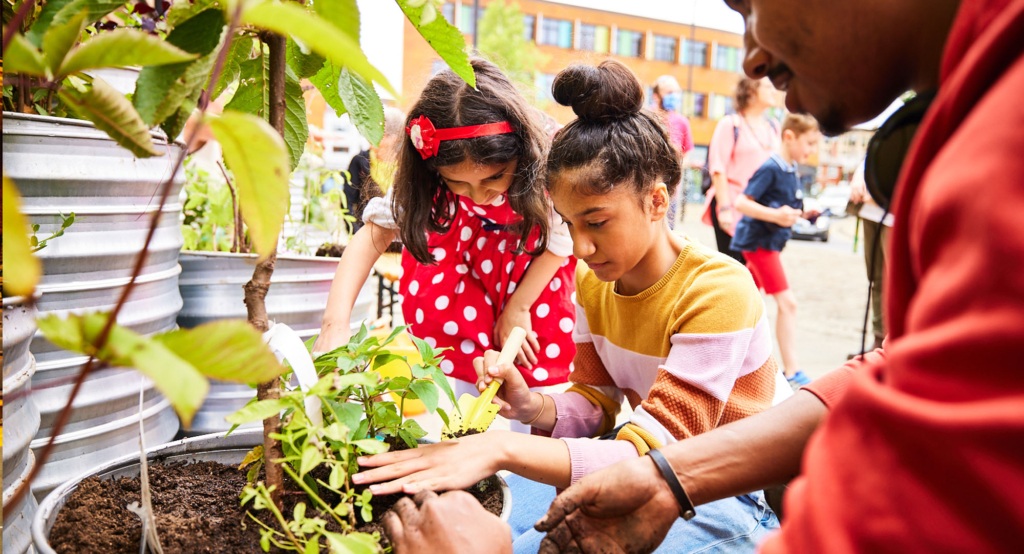Civic Role of Arts Organisations – impact and future priorities

Young people helping to plant The Art House’s Pick Your Own Urban Orchard. Photo by David Lindsay.
Arts organisations working with communities conjure hope and the possibilities of change. They ignite in the heart of civil society the power of the arts to reimagine the world and shape a better future – one rooted in equity, sustainability, creativity and opportunity for all.
At the Foundation, we have called this superpower – and responsibility – the ‘civic role’ of arts organisations. Through our Inquiry into the Civic Role of Arts Organisations and the Programme that followed, we have championed the need for arts organisations in receipt of public funding to demonstrate the value they bring to their communities, across the UK and internationally.
In the seven years since we launched the Inquiry, so much has changed in the external context, much of it turmoil and disruption. Yet we have seen repeatedly how arts organisations have responded with energy and agility, reimagining ways of operating, rallying for those most vulnerable in their communities, creating solutions and connecting people, inspiring joy and hope through arts and culture despite the challenges.
The Foundation’s support for this programme has totalled £3.4 million over the period, seeking to influence change at policy and practice, leadership and network levels. Initiatives such as the Co-creating Change Network, the Creative Civic Change programme and the Award for Civic Arts Organisations have spotlighted and supported the growing movement of organisations embracing a civic role, with often transformational impact in the communities they serve.
Learning report
The new learning report by the programme’s evaluator, Mark Robinson, gives an overview of the work supported by the Foundation in recent years. It shows the civic arts movement is building, but there is much still to do. It also highlights areas for consideration in the next phase, which must respond to the shifts and demands of the sector and society now.
Impact
The Civic Role programme aimed to influence systemic change and grow the movement of civic arts organisations in the UK and beyond. Its impact was analysed through five lenses – here are the key findings from the report:
Future
At a recent gathering with Civic Role partners and stakeholders, we reflected on the five areas of consideration for the future highlighted in Mark Robinson’s report and the questions to guide us going forward:
As the Foundation begins a new phase under the twin priorities of Equity and Sustainability, we remain committed to developing and growing the work that this programme set in motion. With an international team based in Lisbon and London, and connections across Europe, our Access to Culture programme will continue to support arts organisations in the UK, Portugal and beyond to work in and with communities. We will partner with key cultural institutions at national level to grow and embed this work; strengthen knowledge exchange and networks; and, in partnership with others, advocate for a European agenda on the civic role of the arts.
Learning report Access to Culture programme